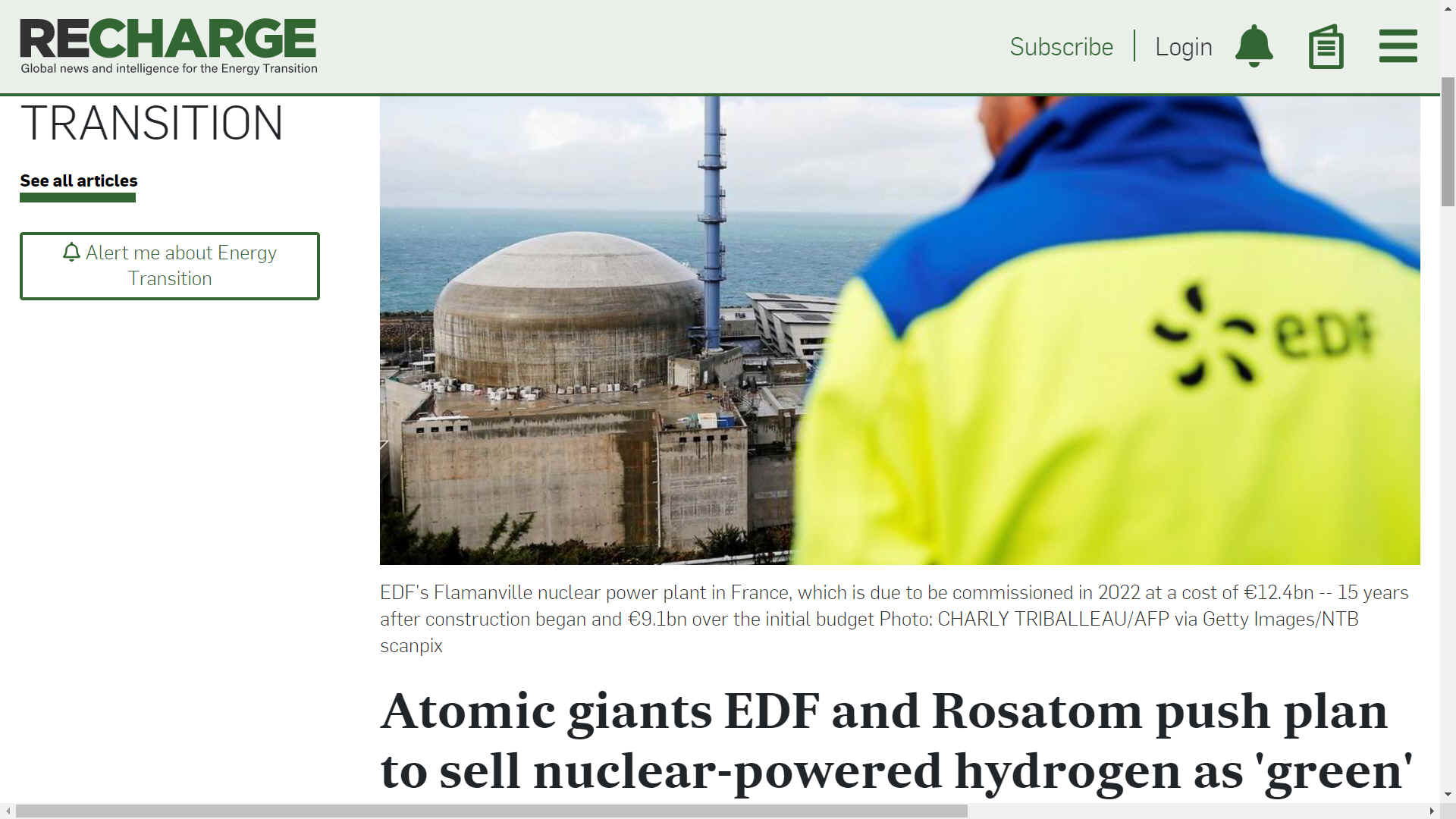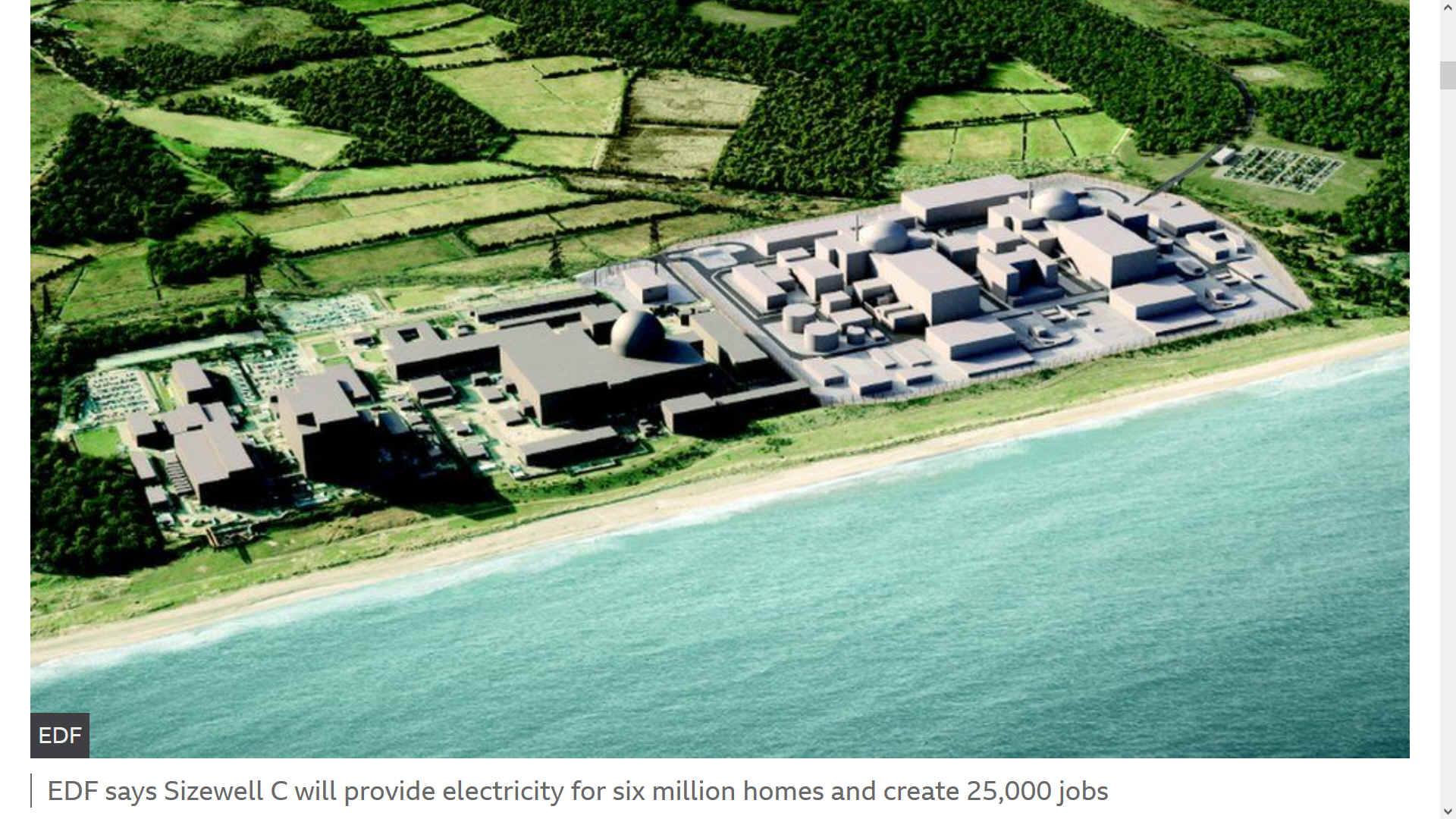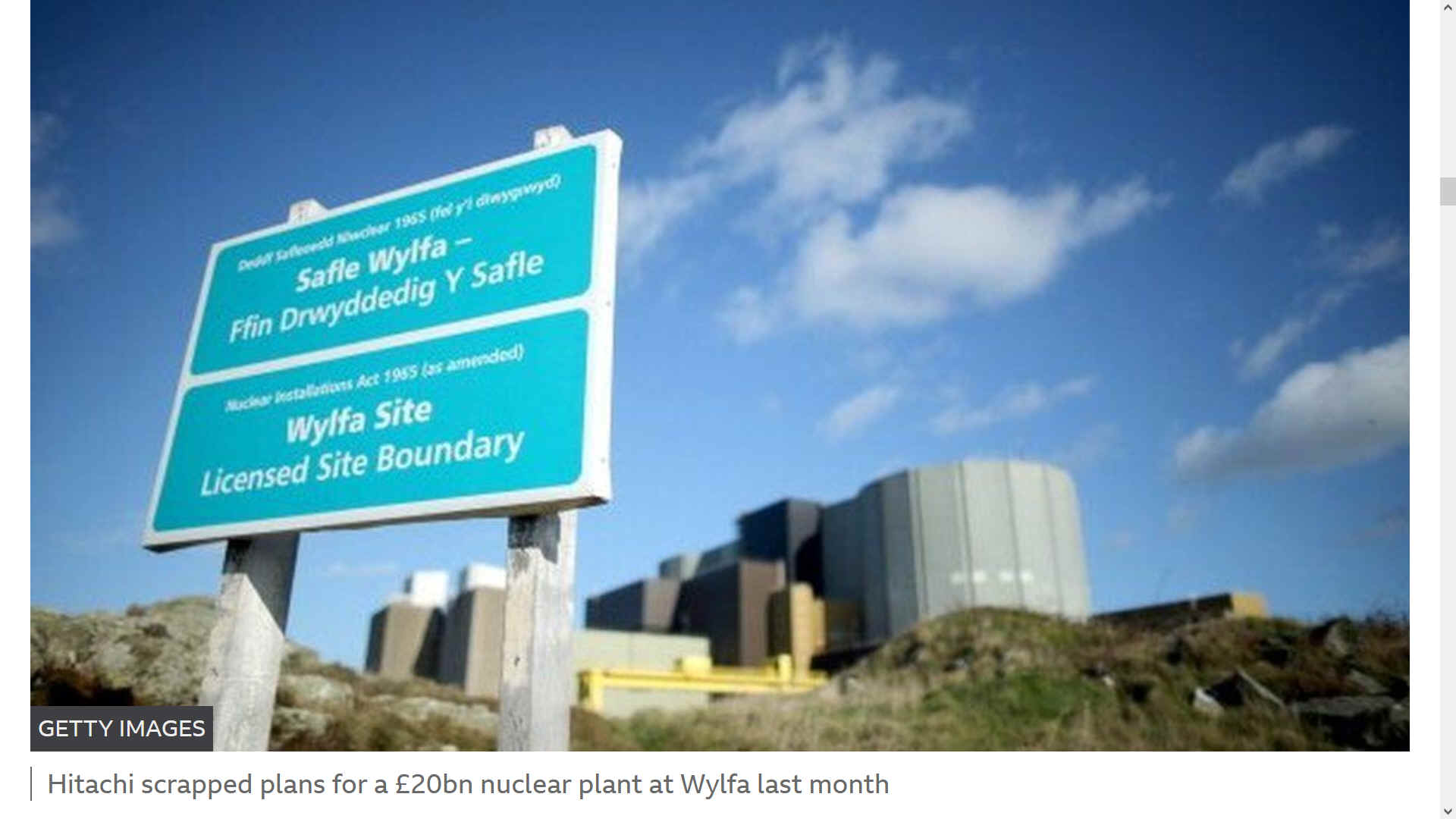|
EDF & ROSATOM GREENWASH
Please use our A-Z INDEX to navigate this site where page links may lead to other sites, or go HOME
|
|
POWER HUNGRY - Although some countries act as though there is no energy crisis, in fact they have departments for such matters, that are there to advise for how much longer they can abuse their positions in world politics, to take advantage of other countries and keep on killing species and warming the planet - before their kleptocratic inclinations are compromised. The fact is, we don't need or want nuclear power polluting our planet with radioactive waste for hundreds of thousands of years, where it is impossible to manage storage for so long. Mainly because the companies that are supposed to guarantee our safety, will cease to exist. Indeed, they will seek to shift contracts to third parties to escape liability, with no security bonds in place should (and it will) that happen - because negligent governments (on the take) are allowing them to escape such essential clauses - or the projects would almost surely be deemed economically inequitable. In other words, the taxpayer will be footing the cleanup bill for the next couple of hundred years. Such burden in terms of taxes is unsustainable, adding to the cost of nuclear energy by the back door.
EDF's Flamanville nuclear power plant in France, which is due to be commissioned in 2022 at a cost of €12.4bn -- 15 years after construction began and €9.1bn over the initial budget
RECHARGE
28 APRIL 2021 - Atomic giants EDF and Rosatom push plan to sell nuclear-powered hydrogen as 'green'
Labelling nuclear hydrogen as green is likely to cause irritation among countries without atomic power or exiting it
Any massive use of nuclear
hydrogen on an EU level is strongly opposed by countries without atomic power, or exiting it, such as Germany and Austria. Andreas Feicht, secretary of state in Germany’s economics and energy ministry, at a late-2020 virtual conference on hydrogen organised by his ministry stressed nuclear is not an option for Germany’s energy system or for the production of hydrogen.
..
LONG TERM
INSECURITY
We might also enter into international agreements to undermine fossil fuel energy trading monopolies and assure that everyone has the right to cheap and clean renewable energy, with the need to transport imports.
Those who held the power and wealth should consider re-investing in alternatives as they head towards the sustainable economics of zero growth.
The deployment of renewable energy technologies increases the diversity of electricity sources and contributes to the flexibility of an international infrastructure system and its resistance to central shocks, especially where off-grid installations are widely deployed, but can be grid connected.
It is likely to be that at some point in the future we will no longer need power stations that run on coal, oil or nuclear fuels. We will have dragged ourselves out of the fossil fuel cesspit and taken power generation from the fortunate few who profit from geological deposits, to the masses who only need a space to mount the harvesting medium for energy independence.
For those countries
whose reliance on imported
gas is a significant
energy security issue, renewable technologies can provide
a level playing field.
FUSION | BIOFUELS | GEOTHERMAL | HYDRO-ELECTRIC | SOLAR | WAVE & TIDAL | WIND
COMPRESSED GAS - ECONOMY - FUEL CELLS - FUSION - HYDRIDES - LIQUID GAS
FUSION LINKS & REFERENCE
https://www.newstatesman.com/politics/2013/09/cost-decommissioning-nuclear-power-station https://www.newstatesman.com/politics/2013/09/cost-decommissioning-nuclear-power-station
Please use our A-Z INDEX to navigate this site
|
|
|
This website is provided on a free basis as a public information service. copyright © Climate Change Trust 2021. Solar Studios, BN271RF, United Kingdom.
|


